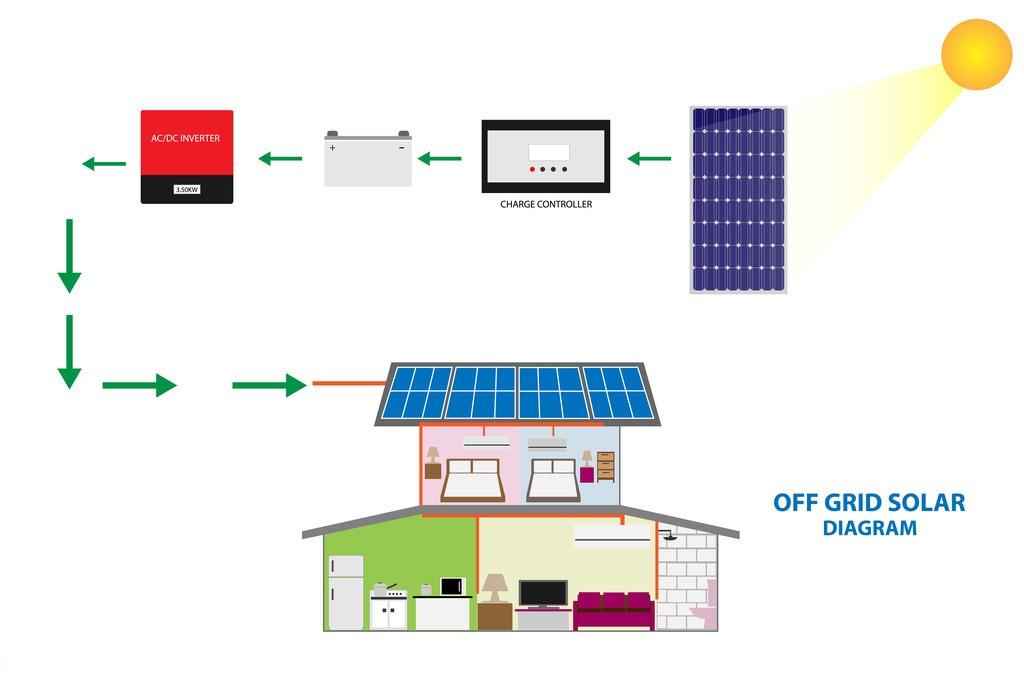As the world pivots towards sustainable energy solutions, hybrid inverters have emerged as powerful players in the realm of renewable energy. Offering a unique blend of functionalities, these versatile devices are redefining the way we harness and manage power. In this blog, we’ll explore the intricacies of hybrid inverters, their features, and the impact they have on the integration of renewable energy sources.

The Hybrid Inverter Unveiled:
The hybrid inverter, often referred to as a bidirectional or multi-mode inverter, combines the functions of both a grid-tied (grid-connected) inverter and an off-grid inverter. This dual capability allows users to seamlessly integrate renewable energy sources like solar panels with energy storage solutions, creating a comprehensive and efficient energy management system.
Key Features and Functionalities:
1. Grid-Tied Operation:
· Hybrid inverters enable the seamless connection of solar panels to the grid. Excess energy generated by the solar system can be fed back into the grid, allowing users to benefit from net metering and, in some cases, receive credits for the surplus energy.
2. Battery Storage Integration:
· The hallmark of hybrid inverters is their ability to store excess energy in batteries. This energy can be tapped into during periods of low solar generation or power outages, providing a reliable and continuous power supply.
3. Uninterrupted Power Supply (UPS) Functionality:
· In the event of a power outage, hybrid inverters can seamlessly switch to backup power from the battery, ensuring uninterrupted electricity supply to critical loads. This UPS-like functionality enhances energy resilience and reliability.
4. Smart Energy Management:
· Advanced hybrid inverters often come equipped with smart energy management features. These features optimize the use of solar power, battery storage, and grid electricity based on factors such as energy demand, electricity rates, and weather conditions.
5. Remote Monitoring and Control:
· Many hybrid inverters can be remotely monitored and controlled using mobile apps or web interfaces. This allows users to track energy production, monitor battery status, and adjust system settings from the convenience of their smartphones or computers.
6. Hybrid Inverter Chargers:
· Some hybrid inverters come with built-in chargers, allowing them to draw power from an external generator or another AC power source. This flexibility enhances the overall reliability of the energy system, especially in off-grid applications.
Applications and Benefits:
1. Residential Solar-Plus-Storage:
· Hybrid inverters are popular in residential settings where homeowners seek to maximize self-consumption of solar energy and have backup power during outages.
2. Commercial and Industrial Systems:
· Businesses leverage the flexibility of hybrid inverters to reduce electricity costs, improve energy resilience, and contribute to sustainability goals through the integration of solar and energy storage.
3. Remote and Off-Grid Installations:
· In remote areas or off-grid installations, hybrid inverters play a pivotal role in providing reliable power by combining renewable energy sources with battery storage and backup generators.
Future Trends and Innovations:
1. Advanced Energy Management Algorithms:
· Continued advancements in energy management algorithms will further optimize the operation of hybrid inverters, maximizing efficiency and cost savings.
2. Integration with Smart Home Systems:
· Hybrid inverters are likely to become more integrated with smart home systems, offering users enhanced control and automation for energy consumption and production.
3. Increased Power Density and Efficiency:
· Ongoing research and development efforts aim to enhance the power density and efficiency of hybrid inverters, making them even more compact and capable.
The rise of hybrid inverters marks a significant step towards a more resilient, sustainable, and self-reliant energy future. Deye inverter is leading the pace of inverters and innovating hybrid inverter.By seamlessly integrating solar power, energy storage, and grid connectivity, these versatile devices empower individuals and businesses to take control of their energy destiny. As technological advancements continue, the impact of hybrid inverters on our energy landscape is poised to grow, shaping a future where clean, reliable, and decentralized energy is within everyone’s reach. The era of the hybrid inverter is here, and it brings with it a new era of energy possibilities.
